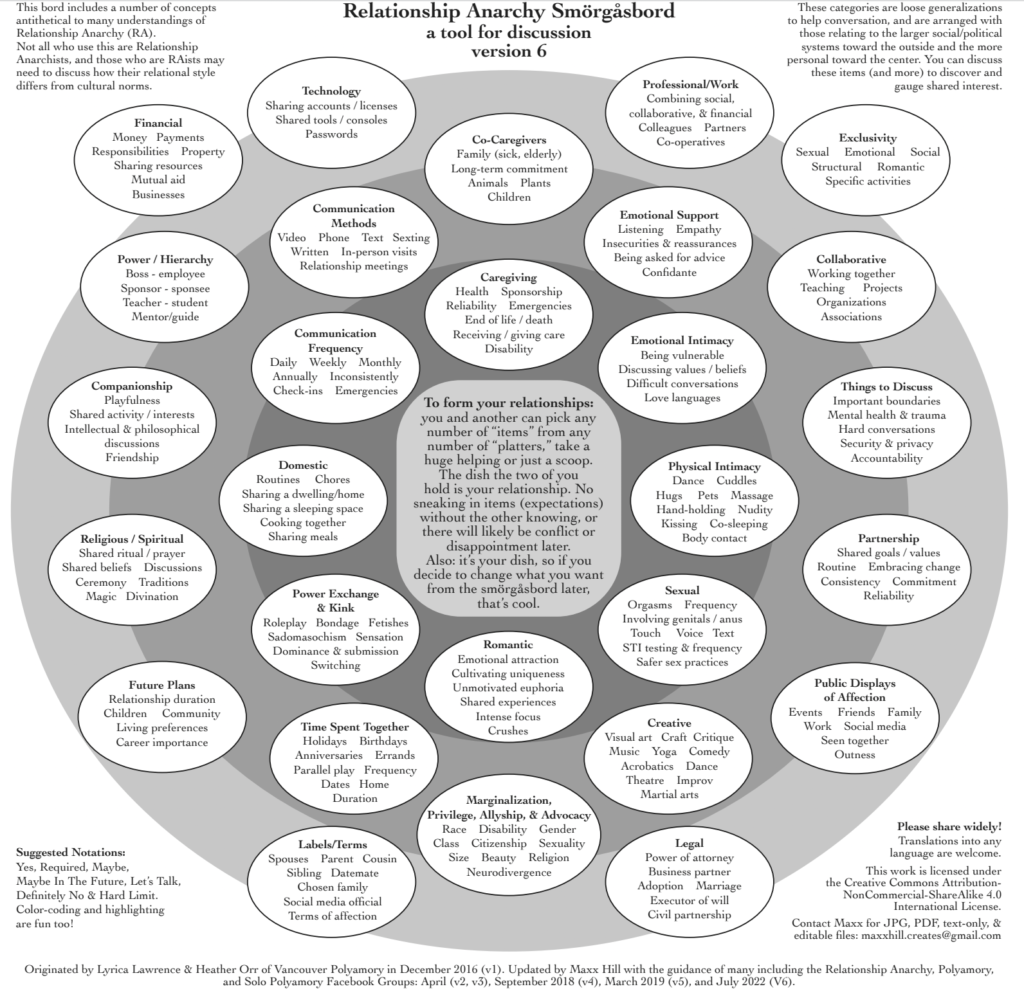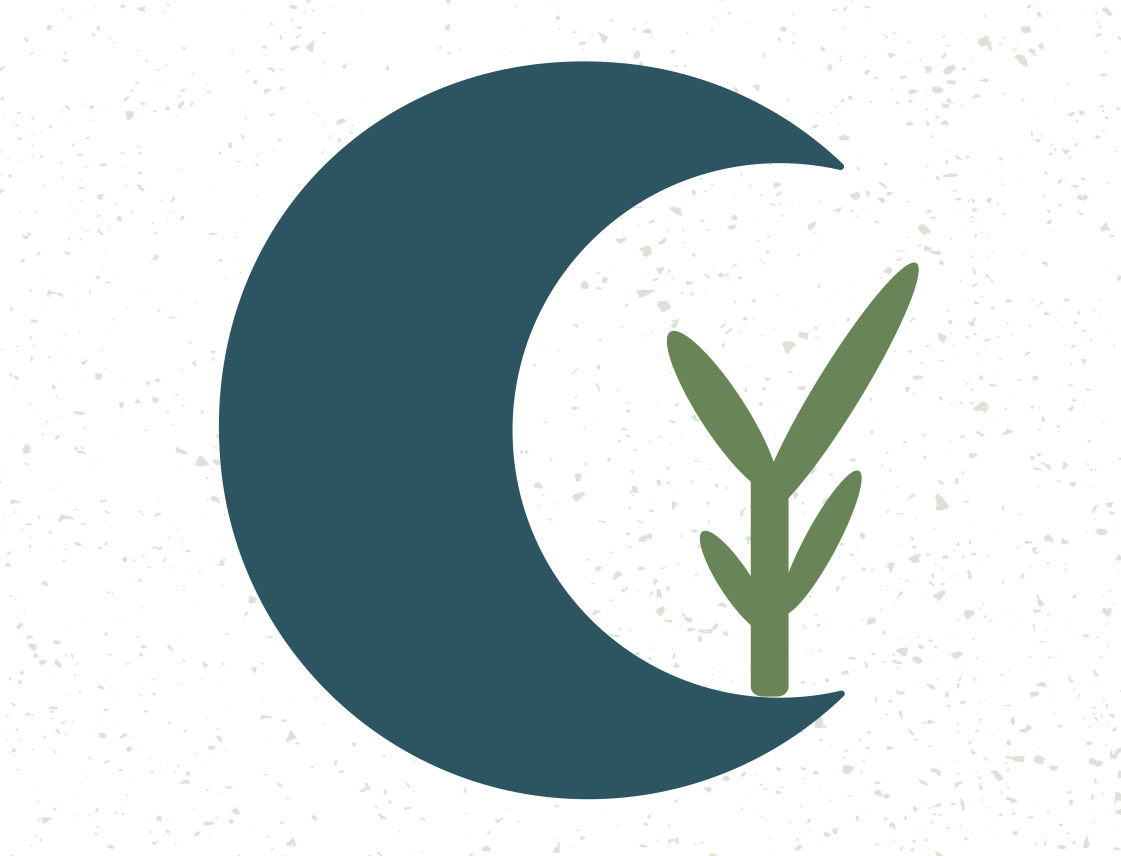Sarah Wolfer, LICSW
Founder/Psychotherapist – Courageous You
Relationships and belonging are integral parts of our human experience, yet they also can be fraught with differences in expectations, challenging conflict, and misunderstandings that can turn into irreversible rifts. Even with all that, I believe that relationships have the potential to be one of the most healing agents of change for humanity and that when we share unconditional love with another soul, our lives are forever transformed.
In my work with folx who are consciously building relationships that work for them, whether that be in “alternative” relationship structures such as ethical non-monogamy/polyamory, or those who have discovered that monogamy is the style best suited for them, I regularly utilize a tool called the “relationship anarchy smorgasbord.” This tool provides individuals, couples, and polycules with the opportunity to take a look inward at their own wants, needs, desires, and deal breakers, and then to communicate that outwards with the other human(s) they are in relationship with.

The relationship anarchy smorgasbord is best thought of as a concept in which you and your partner(s) have a shared plate at a buffet, and you engage in thoughtful discussion around which items you’d both like to add to this plate. The tool, shown above, has several different categories of items that are important to consider the importance of within your relationship. There are platters that cover the gamut from larger social and political concepts near the outside of the image that become gradually more personal as you work your way inward to the center of the tool.
As you and another sit down to have this conversation, you go through each category, pick any number of items, and add any size “scoops” to your shared plate. Each of these items are important to be honest about and discuss openly with one another to ensure you are on the same page around relationship expectations and desires, and to avoid disappointment and resentment forming down the road. Throughout this conversation, ideally first with yourself and then with another, you can ask questions to get at the heart of your desires, and then explore with one another why each of these items are important within your relationship and the specific ways you feel this can manifest.
For example, in the middle of the tool, you’ll see categories such as emotional and physical intimacy, romance, sexuality, and communication. You can ask your partner questions such as “how vulnerable do we want to be with one another?” and “what levels and types of physical touch feel in alignment for us both?” Then as you work your way outwards, you can think about concepts such as finances, religion, future plans, legal aspects, and exclusivity. Get clear on what shared financial responsibilities you want to have and what legal aspects of the relationship are important (for example marriage, adoption, etc). “Do we envision living together now or in the future?” “How do we feel about being the executor of each others’ will?” “Do we want to engage in familial responsibility/co-parenting with one another now or ever?” All of these questions are integral in understanding the relationship landscape for you and your partner(s). As you are working your way through the tool, you can classify each of your scoops as “required”, “maybe”, or “yes” and have fun with different colors and designs that feel best for you and your partner(s).
There are as many ways to relate to another as there are human beings on this planet, which allows for greater flexibility and creativity in how we intentionally design our relationships. Rather than creating relationships based on what societal norms and structures advise, I recommend taking a deeper look at what factors are important to you in relationships with others and designing your relationships around that. This tool is meant to be formed into what you want and need, so feel free to infuse it with the magic that is the love story of you and your partner(s). There’s great power in the choices we have over our lives and the types of relationships we enter into. Why not custom-build our connections to reflect exactly what we want and need?

